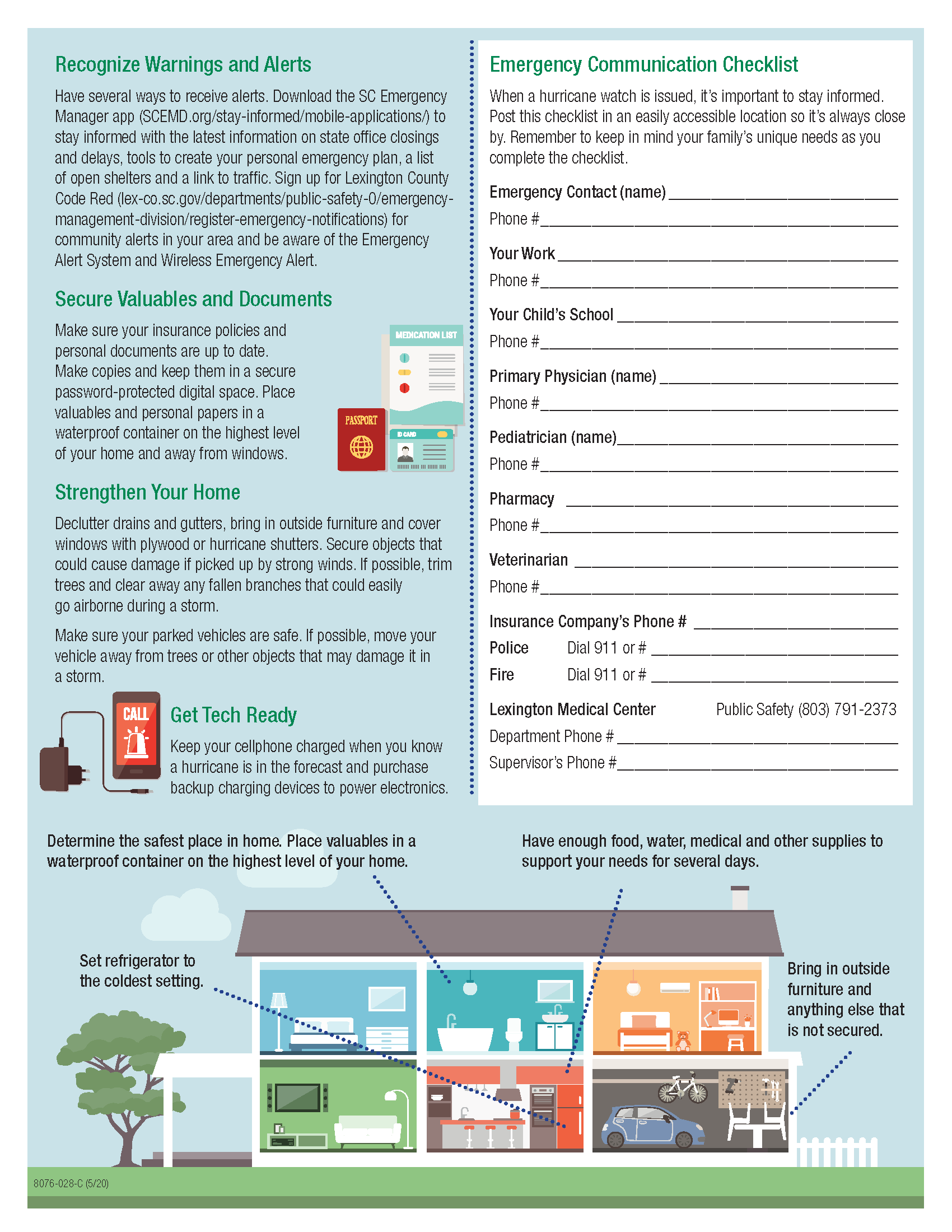National Hurricane Preparedness Week
Hurricane season officially begins on June 1, so from May 4 to May 10, federal, state and local emergency organizations will educate their communities on the dangers these storms pose. Therefore, it is important that we ensure everyone is prepared for the risks associated and knows what to do before, during and after these storms.
Know Your Risks
All areas experience different threats to life and property during these powerful storms, so It is important to consider all these when developing your preparedness plan. Below are risk considerations for the Midland area:
Damaging Winds - Tropical cyclones, whether major hurricanes or tropical depressions, can produce damaging winds. These powerful winds can uproot trees, knock down structures and make roads impassable by debris. Most notably, wind can damage critical utility infrastructure such as power, phone and network causing other widespread threats to life and property.
Tornadoes - These are the invisible dangers of tropical weather. Tornadoes most often occur in thunderstorms embedded in the cyclone’s rain bands.
Flooding - Heavy rainfall is a common occurrence with tropical weather, so it is important you a familiar with areas that are prone to flooding. However, the danger is in a weather phenomenon known as “flash flooding.” Flash flooding can catch the community unaware causing severe flooding quickly, stalling vehicles or catching unsuspecting individuals in rapidly flowing water.
Prepare Before the Season
The best time to prepare for any hazard is before it happens. These simple steps will help avoid the rush to pick up supplies and find the shelves empty. Additionally, this would be a good time to review your insurance coverage. Below is a video from the American Red Cross on how to build an Emergency Preparedness Kit.
Additionally, the South Carolina Emergency Management Division provides more information for hurricane readiness for South Carolina, especially those individuals that live along the coast. Be sure to visit their website for additional preparedness information.
Understand Forecast Information
Understanding your local or national weather forecast is essential to your response to the event. For example, knowing the difference between a Watch and a Warning.
Emergency Alerts
There is a lot of information associated with the weather, so it is important that you know how to interpret the forecast and trust the individual or organization providing the information.
There are several ways to get severe weather information:
NOAA Weather Radio - The National Oceanic and Atmospheric Association provides a nationwide network of radio stations that broadcast continuous weather information from the nearest National Weather Service office based on your physical location. We encourage everyone to have a weather radio in their home or at their office desk. Remember to change the batteries regularly
CodeRed Alerts - The South Carolina Emergency Management Division and local emergency managers use CodeRed alerts to send residents important public safety information about local incidents. Learn more and Sign Up for CodeRed Alerts
Social Media - Social media is a great tool to receive real-time information concerning emergency incidents. We suggest you follow or like trustworthy social media content from organizations or personalities such as local meteorologists, federal weather services, law enforcement officers or agencies, and state emergency management organizations.
Mobile Applications - There are several applications you can install on your device that will provide real-time alerts such as:
South Carolina Emergency Manager - This is the official mobile app for SCEMD. The app allows users to build personal emergency plans, keep track of supplies and stay connected during an emergency. Download the app for your iOS or Android device today.
Traffic Conditions from SCDOT - The South Carolina Department of Transportation mobile app can provide users with the latest information concerning traffic conditions. Download the app for your iOS or Android device today
American Red Cross Shelter View - The American Red Cross opens temporary shelters for individuals displaced by hurricanes. The mobile app provides a list and location information for area shelters. Download the app for your iOS device today. Although the app is not available for Android devices, you can still view available shelters online.





